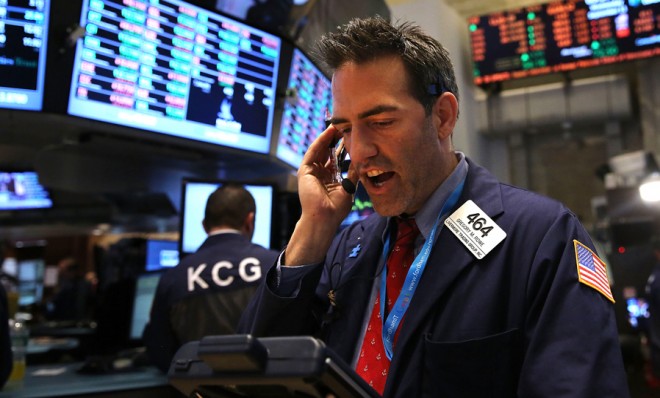Verizon's $49 billion bond sale was bigger than Tunisia's GDP
Here's what that means for the company

A free daily email with the biggest news stories of the day – and the best features from TheWeek.com
You are now subscribed
Your newsletter sign-up was successful
On Wednesday, Verizon Communications sold a whopping $49 billion in bonds — the largest corporate bond deal in history — to raise funds to purchase all of Vodafone's stake in their joint partnership Verizon Wireless. At a total of $130 billion, the acquisition is expected to be the third largest of all time.
Wall Street went bananas for the bonds. In just hours, buyers placed $100 billion in orders. "Some investors put in orders so large that underwriters called them back to be sure they had the cash to cover the sums they asked for," says The Wall Street Journal. Some investors who had their orders filled turned around and quickly sold them at a profit — and some who couldn't buy directly from Verizon, went ahead and bought the securities in the secondary market. "Trading in the market afterward was frenetic," said the Journal.
But what will such a giant lump of debt cost the U.S.'s biggest wireless carrier?
The Week
Escape your echo chamber. Get the facts behind the news, plus analysis from multiple perspectives.

Sign up for The Week's Free Newsletters
From our morning news briefing to a weekly Good News Newsletter, get the best of The Week delivered directly to your inbox.
From our morning news briefing to a weekly Good News Newsletter, get the best of The Week delivered directly to your inbox.
"Despite the demand, Verizon paid a hefty price to investors," says The Los Angeles Times. Verizon set the yields on the high side — probably to try to wrap up the deal quickly to avoid rising interest rates, and squash the risk of having to pay Vodafone a $10 billion breakup fee if it couldn't come up with the funds. Its $11 billion in 10-year notes, for example, went for 5.19 percent — way above the 4.51 percent yield Verizon had offered recently on similar bonds. In comparison, Apple's yield on the 10-years it offered in April was just 3.86 percent.
The sale also cost the company a pretty $265 million in bond-sale fees to JPMorgan Chase and Morgan Stanley, among other underwriters. The fees added up to .541 percent of the funds raised — a significant notch above the average .486 percent, according to Bloomberg's data.
Meanwhile, though Verizon is expecting to make big profits from the buyout, it's taking on a lot of debt at a time when investors are showing some uncertainty about the company's credit status. The spread on Verizon's credit-default swaps is up 43 percent in just the last month, says The Wall Street Journal.
For the uninitiated, a credit default swap is a little like an insurance plan that investors can buy to bet against a security. The "spread" is determined by the annual amount the buyer has to pay the seller; when a CDS has a higher spread, it means the market thinks the security is more likely to default. Here's why that matters:
A free daily email with the biggest news stories of the day – and the best features from TheWeek.com
Fitch Solutions, the data arm of the credit rating agency, said the trading in Verizon CDSs have picked up since February and the security is now trading with more liquidity than 95% of the Fitch universe. Director Diana Allmendinger said CDS levels are indicating that the market is now pricing Verizon at ‘BBB+’ levels, three notches above junk and one below the rating Fitch is giving the company. [The Wall Street Journal]
Meanwhile, Fitch is keeping the rating at A-. The agency told the Journal it expects Verizon to begin cutting away at its debt immediately after the deal closes.
Carmel Lobello is the business editor at TheWeek.com. Previously, she was an editor at DeathandTaxesMag.com.